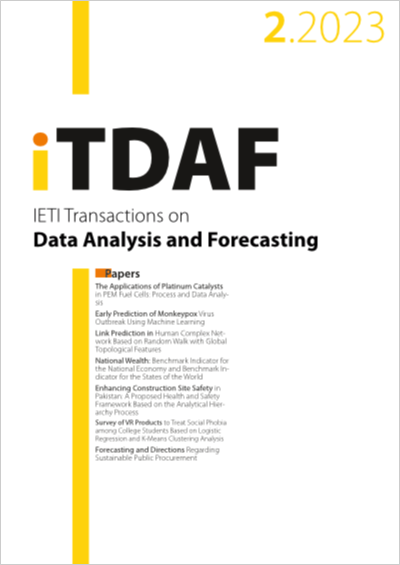Survey of VR Products to Treat Social Phobia among College Students Based on Logistic Regression and K-Means Clustering Analysis
DOI:
https://doi.org/10.3991/itdaf.v1i2.34033Keywords:
social phobia, VR technology, binary logistic regression model, K-Means clustering analysisAbstract
Social phobia or social anxiety disorder, is characterized by a fear of embarrassing situations in front of others, leading to long-term chronic anxiety disorders. The purpose of our study is to examine the market prospects of using virtual reality (VR) technology for the treatment of social phobia. Specifically, we aim to investigate the current prevalence of social phobia among college students in eight universities in Guilin and explore their willingness to adopt VR technology as a treatment option. To achieve this, we utilized various data collection methods, including questionnaire surveys, literature surveys, and field interviews. Through descriptive statistical analysis we gained insights into the respondents’ demographics and their perceptions of social phobia and its treatment. Subsequently, we constructed a binary logistic regression model to identify the influencing factors contributing to social phobia among college students. Additionally, we conducted factor analysis, which revealed that the aspects of service quality, safety, and environmental quality were or utmost concern. Finally, we employed K-Means cluster analysis to differentiate the distinctive characteristics of potential users and develop effective strategies for the advancement of VR technology in social phobia treatment.
Downloads
Published
How to Cite
Issue
Section
License
Copyright (c) 2023 Quan Li, Jianwei Qiu, Xiaoying Liu, Caimeng Huang, Ling Liang

This work is licensed under a Creative Commons Attribution 4.0 International License.


